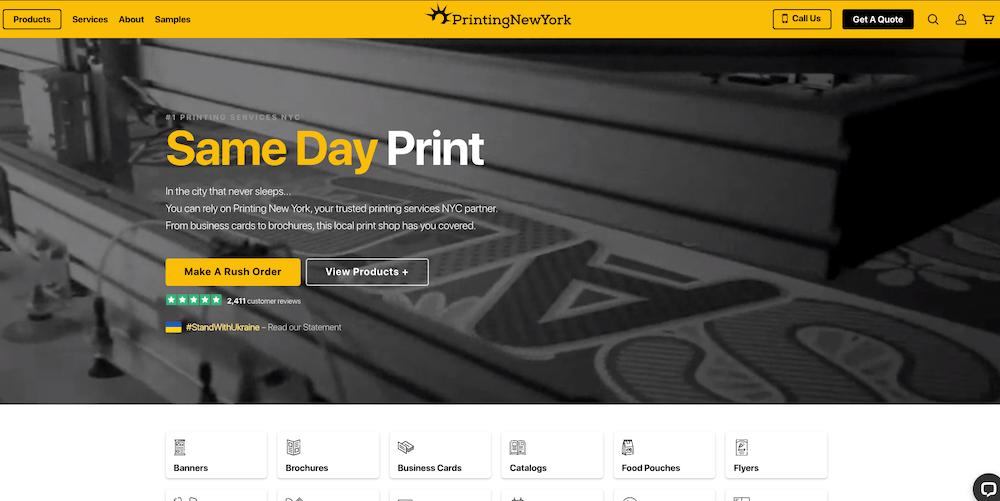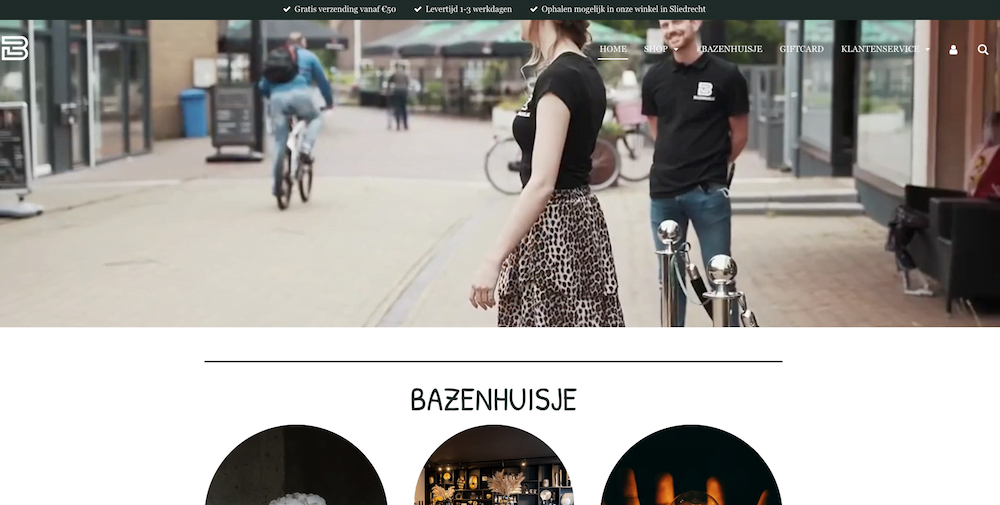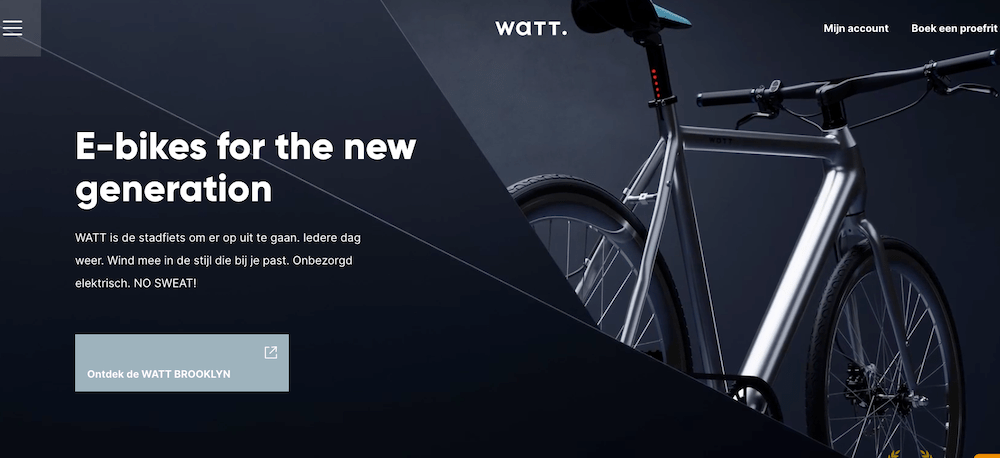The 5 Best E-commerce Platforms Tested & Compared (2025)
Want the answer right away? Cloud86 with WooCommerce is the best choice for those who want complete freedom (I use this for my own online store), while Shopify offers the best all-in-one ecommerce platform.
The e-commerce platform you choose can make or break your online store.
Starting an e-commerce site has never been easier than it is today. At the same time, there are more online store software options available than ever before, which can make it challenging to choose the best solution for your specific needs.
That's why I've created this overview. Whether you want to start an online store from scratch, or you want to take your existing brick-and-mortar shop online, I'm confident you'll find exactly what you're looking for here.
The 5 best e-commerce platforms
- Cloud86 with WooCommerce – Most affordable option with maximum flexibility
- Shopify – Excellent for online stores of all sizes
- Wix – Great for small online stores
- Webador – Perfect for hobbyists
- Lightspeed – Best multichannel platform
There are countless ways to sell products online. Platforms like Lightspeed and Shopify are specialized solutions that are purely focused on commerce.
Wix and Webador are website builders in the broader sense of the term that also function as e-commerce software.
You'll also find Cloud86 in this overview. This is a web hosting provider for people who want to use WordPress and WooCommerce as their online store software.
One e-commerce platform isn't necessarily better than another. Take a look at the reviews below to find which online store software is best for you.
Cloud86 with WooCommerce – most affordable with maximum freedom

WordPress is a platform that lets you create virtually any type of website you can imagine. Simply click and install the free WooCommerce plugin on your site, and you'll add an online store to it.
There are countless hosting providers to host your WordPress site. Cloud86 is one of the best options. It's not only the fastest WordPress hosting in Europe, but it also offers customer service you can reach by phone without any wait time. Additionally, they provide extremely affordable hosting: their cheapest plans, which can run WooCommerce e-commerce software, cost less than ten dollars per month. That's much cheaper than the SaaS (Software as a Service) e-commerce solutions mentioned below.
Cloud86 and WooCommerce features:
- Endless plugins and functionality to add. WordPress is open source and used by hundreds of millions of people. This results in an abundance of extra functionality and tools that you can easily integrate into your site with just a few clicks. Ultimately, this gives you just as many possibilities as with Lightspeed or Shopify.
- Complete design freedom. Choose a multifunctional WordPress theme like Kadence and design your online store exactly the way you want it.
- WooCommerce is open source e-commerce software. This gives you complete control over everything.
- Global community. WooCommerce is used by online stores worldwide and has a very active online community.
- Content is built into the core. Easily add a blog.
- Add products, checkout and more to any page. Via shortcodes or Gutenberg blocks.
- Sell as many products as you want. No limitations like those found in the cheaper plans from the platforms mentioned above.
Reasons to use Cloud86 and WooCommerce:
If you think the WordPress with WooCommerce combo is the best online store software for you, then check out our WooCommerce guide where I'll show you how to set up an online store with Cloud86.
Reasons not to use Cloud86 and WooCommerce:
View Cloud86 pricing here or read our Cloud86 review.
Shopify – Excellent for online stores of all sizes

For many people, the name Shopify is synonymous with ecommerce. With millions of users, this Canadian platform is by far the most popular online store software. Shopify is suitable for web stores of practically all sizes—from small startup shops to online retailers generating millions of euros in revenue.
Shopify features:
- 70+ online store templates. No matter what type of online store you're planning to create, Shopify will have a design that suits your needs.
- Extremely robust security. Shopify's e-commerce platform is Level 1 PCI compliant, ensuring that both your customers' data and your own information will always remain secure.
- Marketing and SEO. Shopify offers a simple yet effective blogging feature that allows you to easily engage in content marketing. Additionally, Shopify has built-in SEO tools that let you easily customize meta titles and descriptions, and implement other on-page SEO optimizations.
- Reporting and analytics. Easy to integrate with Google Analytics and provides good product and sales reports (available with their more expensive plans).
- Omnichannel. Like Lightspeed, offers a POS system you can use for your offline sales. Additionally, you can easily sell your products on social media.
- Mobile app (iOS and Android). Manage your online store on the go. Handle incoming orders and access your Shopify dashboard from your mobile phone.
- 24/7 support. Available through both live chat and phone. However, not offered in Dutch.
Reasons to use Shopify:
Reasons not to use Shopify:
View Shopify's pricing here or read our Shopify review.
Wix – Great for small online stores

Wix is a website builder used by bloggers, businesses, and online stores. It's a versatile tool, though it lacks many of the more complex e-commerce features found in Shopify and Lightspeed. While there's no limit to the number of products you can sell, the platform is best suited for smaller online shops.
Wix features:
- More than 120 free templates for online stores. That's more than all the platforms mentioned above combined.
- Website Editor that gives you (almost) complete design freedom. You can place site elements exactly where you want them.
- 24/7 customer service. Available via live chat or phone.
- Advanced reporting. Only available with their Business VIP plan.
- Add as many products as you want with all plans. No limit on your product offerings, unlike Lightspeed's cheaper plans which do have restrictions.
- Automatically send an email to customers who abandon their shopping carts. An easy way to boost your sales.
- Dropshipping. Through Modalyst.
- Built-in loyalty program. Available through Smile.io, but only with their most expensive e-commerce software plan.
Reasons to use Wix:
Reasons not to use Wix:
Check out Wix pricing here or read our Wix review.
Webador – Perfect for hobbyists

Webador is a Dutch website builder. Their core value is “simplicity.” Webador's goal is to help non-technical people get a website up and running as quickly and easily as possible. They've succeeded in this mission. Their software is ridiculously easy to use – whether you want to build an online store or a business website. The downside, however, is that Webador is limited in terms of functionality. This makes it only suitable for hobby-level online stores.
Webador features:
- Unlimited storage space. Although truly “unlimited” doesn't exist in the world of web software, with Webador you should still be able to go quite far.
- Integration with analytics tools. Think of platforms like Google Analytics and Google Search Console.
- Easy VAT calculation and inclusion. This is built right into the standard product.
- Track & trace links. Track your orders.
- Many integrations with delivery services active in the Netherlands. For example PostNL, DHL, DPD, GLS and UPS.
- Accounting integrations with Dutch accounting software. Such as e-Boekhouden.nl, Moneybird, Exact, Snelstart and Rompslomp.
Reasons to use Webador:
Reasons not to use Webador
View Webador's pricing here or read our Webador review.
Lightspeed – Best multichannel platform

Lightspeed is a Canadian company with offices worldwide, including Amsterdam. It's a multichannel platform that focuses on both online and brick-and-mortar stores. Their e-commerce software, Lightspeed eCom, was developed in the Netherlands.
Lightspeed features:
- Omnichannel capabilities. This makes it suitable for both online and offline sales, as well as selling through social media.
- Simple inventory management. Use your POS system to purchase products. Additionally, it's very easy to add product variations.
- Advanced payment methods. This includes mobile payments, refunds, and flexible payment options – whether customers are in your store or visiting your website.
- Built-in SEO tools. Makes it easier to drive organic traffic to your online store.
- Connection between your physical store inventory and online shop. Your customers can see in real-time exactly how many products you actually have in stock.
- Fast and substantial product data updates. Import and export spreadsheets.
- Lightspeed Payments. Manage all your payments from a single environment. Funds are available in your account within two days.
- 50 webshop templates to choose from. Option to display products in HD. Templates can be customized to your liking.
- Excellent shipping options. Shipping integrations with services like MyParcel and SendCloud.
Reasons to use Lightspeed:
Reasons not to use Lightspeed:
Check Lightspeed pricing here (you can try it free for 14 days) or read our Lightspeed review.
Comparing the best e-commerce software
| Lightspeed | Shopify | Wix | Webador | Cloud86 / WooCommerce | |
|---|---|---|---|---|---|
| Starting price | €49 per month | €21 per month | €22 per month | €8.50 per month | €2,95 per month |
| What it is | Closed SaaS (Software as a Service) platform | Closed SaaS platform | Closed SaaS platform | Closed SaaS platform | Self-hosted ecommerce software |
| Sales | Physical products, digital products, dropshipping, reservations | Physical products, digital products, dropshipping | Physical products, digital products, dropshipping | Physical products, digital products, dropshipping | Physical products, digital products, dropshipping |
| Offline sales | ✓ | ✓ | ✓ | ✕ | ✕ |
| Ease of Use | 7/10 | 9/10 | 9/10 | 10/10 | 8/10 |
| Features | 10/10 | 10/10 | 8/10 | 7/10 | 10/10 |
| Designs | 8/10 | 9/10 | 9/10 | 6/10 | 10/10 |
What I look for when selecting the best ecommerce platform
The best e-commerce platform for your business depends on factors such as your experience level, how much flexibility you want, and how large and complex you expect your online store to become.
User-friendliness and stability of the software
Well-designed software should require minimal mental effort. You should expect certain functionality to be located in logical places and that it won't take weeks to master the software. Additionally, it should be relatively simple to customize the appearance of your online store. The best e-commerce software must also be stable and free from irritating bugs and glitches.
E-commerce platform features
Delivery options, payment methods, automatically sending an email to customers who abandon their shopping carts… And much more. I expect an e-commerce platform to offer the features you need to maximize your profits with minimal effort.
Designs
How many design templates do you have to choose from? What do they look like? Are they suitable for every type of online store? Additionally, it's important that you can customize the design templates to your own taste, allowing you to give your online shop a unique twist.
Support
Customer service is something you generally don't think much about. Until you need it. At that moment, you want to easily connect with a real human being. And you have every right to expect that your problem will be resolved quickly and properly.
Advanced e-commerce features
Consider features like real-time synchronization between your physical store inventory and your online shop inventory, or comprehensive reporting capabilities.
Conclusion: this is the best e-commerce software
Here you'll find the best ecommerce software providers again:
- Cloud86 with WooCommerce – Most affordable with maximum flexibility
- Shopify – Excellent for online stores of all sizes
- Wix – Great for small online stores
- Webador – Perfect for hobbyists
- Lightspeed – Best multichannel platform
You'll find e-commerce software in all shapes and sizes. Some platforms are perfect for just a handful of products, while others are better suited for online stores generating millions in revenue.
Keep in mind that not every platform is equally scalable. If there's a reasonable chance that your hobby project might one day grow into an e-commerce giant, then don't choose Webador or Wix.
Always choose a platform that can grow with you, should you have that ambition.











